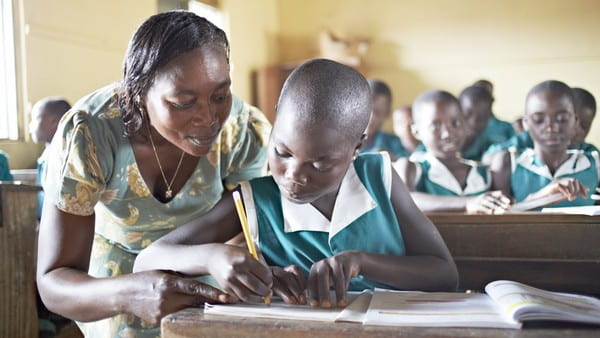Only around 37% of adults in Africa have completed secondary education (high school), while only 18% have completed post-secondary education (college). This is an issue that must be brought to attention. The UN has established 17 Sustainable Development Goals, which are essential objectives aimed at fostering a more equal world. More specifically, the 4th goal, which focuses on improving access to education for children worldwide, is particularly important. If this goal is achieved, it would enable many people to secure better-paying jobs that they likely would not have obtained without a proper education. The goal is not only to provide education but also to enhance existing educational institutions by equipping them with the necessary resources.
One of the biggest benefits of increasing access to education is the potential to strengthen the economies of developing countries in Africa. According to UNESCO, “It is estimated that 244 million children and youth between the ages of 6 and 18 worldwide were out of school in 2021, of which 118.5 million were girls and 125.5 million were boys.” Improving the quality and availability of education would also attract a wider range of job opportunities to these countries. A good education equips students with the necessary skills to secure higher-paying jobs. Without education, many talented individuals are forced into labor-intensive jobs. If countries and generous donors invest in expanding educational opportunities, economies could grow, and individuals could access better employment prospects.
It is equally important to focus resources on improving existing institutions, as many lack modern tools that contribute to a higher standard of education, such as computers, textbooks, and sufficient teachers. Without these resources, students may still struggle to receive a proper education, even if they have access to a school. By investing in teacher training and educational tools, we can enhance the learning experience and ensure that students receive a high-quality education that prepares them for their future careers.
Education can also promote social justice by providing equal opportunities for marginalized groups who may face barriers to accessing education. Expanding educational access can help break the cycle of poverty and create more opportunities for these communities. Additionally, educated individuals are more likely to contribute to the well-being of their society.
In conclusion, improving access to education in Africa is a crucial goal that must be brought to the attention of governments, charities, and individuals willing to support the cause. By achieving the UN’s 4th Sustainable Development Goal, we can provide individuals with better job opportunities, stimulate economic growth, and promote social equality. Meeting these goals would create a brighter future for millions of people in Africa who currently face significant challenges in obtaining a proper education due to physical and social barriers.






